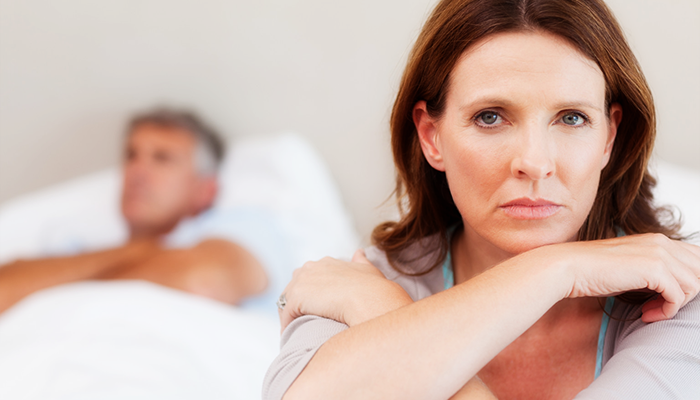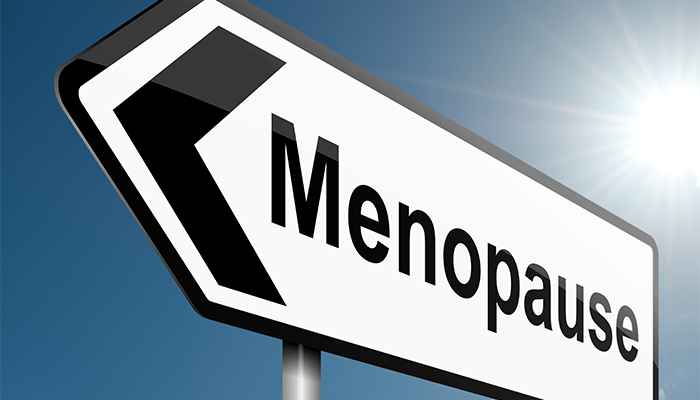Women approaching menopause are at increased risk for depression, and two new studies offer some of the strongest evidence yet that hormonal changes may be at least partially to blame.
Both studies followed women through the transition to menopause, known as perimenopause. None of the women had a history of depression prior to this time in their lives, but their risk of developing symptoms of depression greatly increased during these years.
The two studies are published in the journal Archives of General Psychiatry.
The findings argue in favor of aggressive treatment of both menopausal symptoms and depression symptoms occurring during the transition to menopause, researchers say.
There is a tendency to dismiss symptoms of depression as part and parcel of this transition, but they shouldn’t be discounted.
From a public health point of view, depression is a substantial illness with significant morbidity for patients and their families.
This is a real problem, but the good news is that it is a problem that can be managed.

Risk of Depression
Cohen and colleagues followed 460 Boston women between the ages of 36 and 45 for up to six years. All of the women were premenopausal at enrollment, meaning that they still had regular periods or had not undergone other changes indicative of transition to menopause.
None of the 460 women had ever been diagnosed with major depression. But those who entered perimenopause during the study period were almost twice as likely as those who didn’t to develop significant symptoms of depression.
The risk was greater in perimenopausal women, who also had hot flashes, but it was still greatly elevated in those who did not have this and other common symptoms associated with transitioning to menopause.
Menopause
Menopause can be a challenging time for a woman handling the symptoms as her body transitions. Menopause can cause a woman to feel more vulnerable and susceptible to depression.
While minor mood changes are considered acceptable as menopausal symptoms, depression is never considered normal. It should always be evaluated and treated by your gynecologist. If symptoms persist, a mental health professional should be consulted.
The most common menopausal symptoms that can compound depression are fluctuating hormones, insomnia and hot flashes. These can contribute to mood disorders and depression.
Women that have a history of depression before menopause should consider being evaluated for depression early on. Women that have a history of depression around or after hormonal changes, like mood swings during triggered by their menstrual cycle or after childbirth, are more susceptible to depression during perimenopause and menopause.
Women that experience hormone fluctuation, hot flashes or insomnia are also more likely to experience depression.
Fluctuating hormones
As women move into menopause the ovaries start producing less estrogens and progesterone. The decrease in estrogens may cause mood changes because estrogens interact with chemicals in the brain that affect mood.
Hot flashes
Hot flashes are defined as an intense, sudden feeling of warmth usually radiating to the scalp, face, neck and chest. Hot flashes are an uncomfortable side effect of hormone imbalance. This is usually associated with changes in your estrogen levels or the ratio between the levels of estrogen and progesterone in your body.
Depending on the intensity of your hot flashes your ability to handle daily activities may be affected.
Insomnia
The hormonal changes, which impact sleep the most, are night sweats and hot flashes. However the lack of sleep can also cause irritability, tiredness, and an inability to tolerate stress. It can also result in frequent infections, an inability to lose weight, altered appetite, and decreased productivity.
Your doctor can check your hormonal levels including your estrogens, progesterone and thyroid hormones. Imbalances in any of these could cause depressive thoughts. Hormone replacement therapies can help to balance these and restore mood.
Menopause is a normal part of a woman’s aging process. Depression is not.
If you are having symptoms that are interfering with your happiness and daily activities, make sure to talk to someone who can help you get a handle on them. It can make all the difference in your life.
It has been my honor to help patients reduce hot flashes, get more sleep, and relieve mood disorders by adjusting their hormones, and improve their life.





